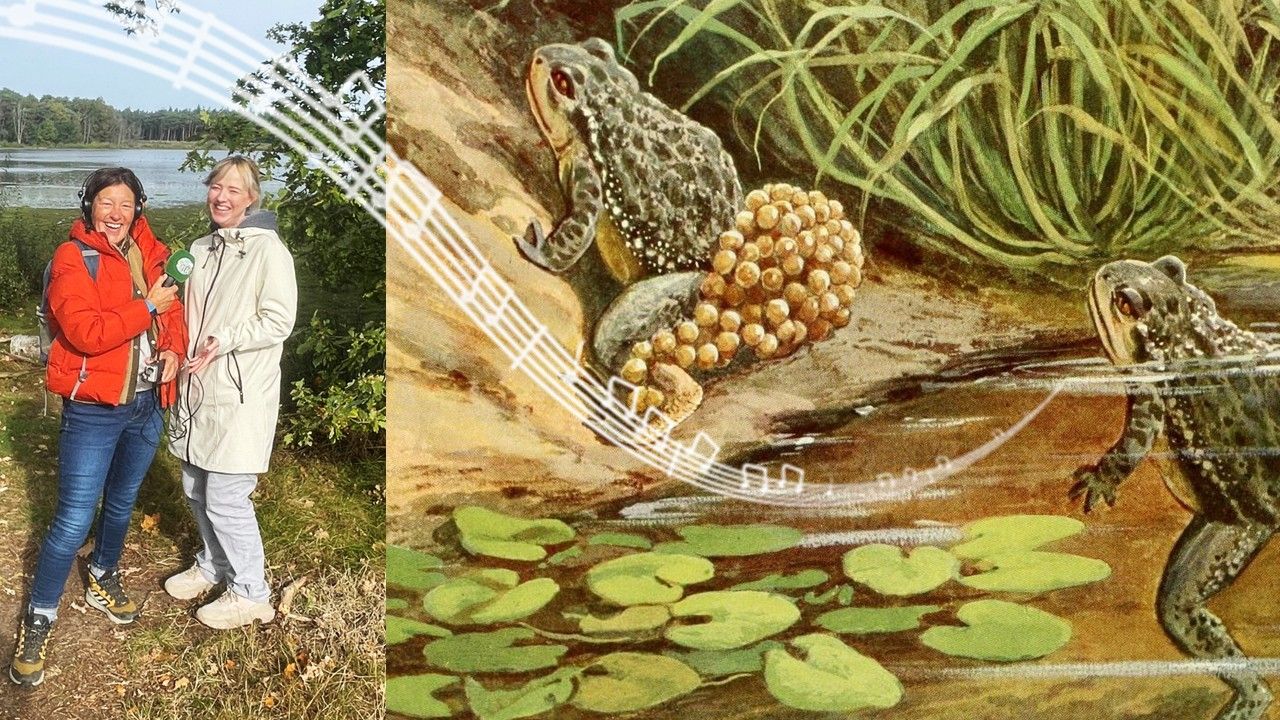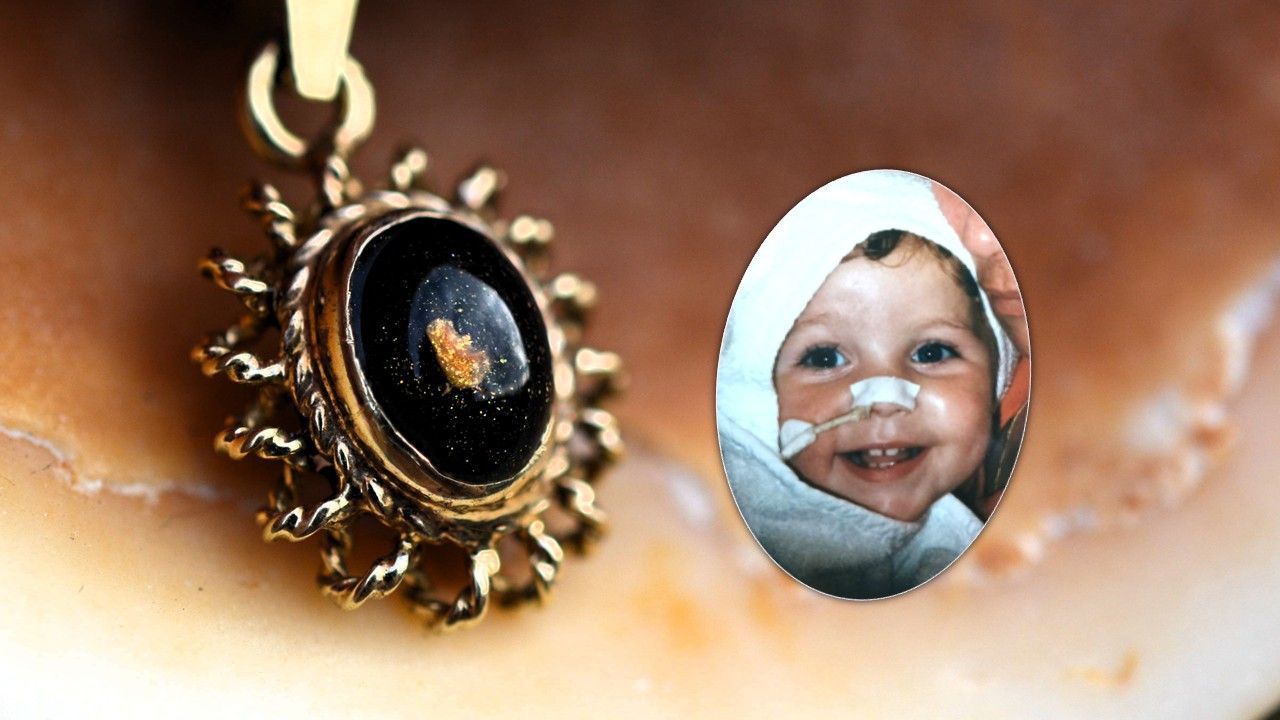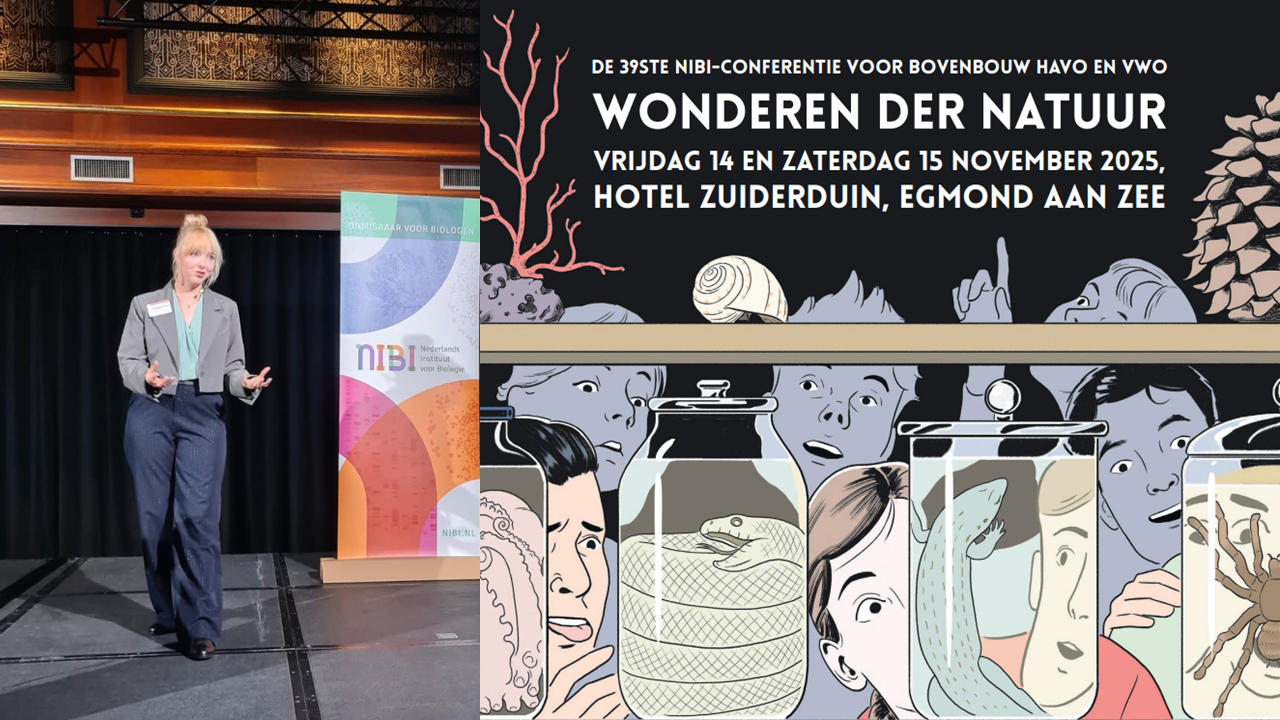What is it like to be a biologist?
(Blog alleen in het Engels)
10 dec, 2021
Have you ever wondered what it is that biologists do all day? You might think they go on adventures all the time; discovering plants, animals and fungi on a roll, as they travel through forests, mountains, rivers, and oceans. As much fun as that sounds, I want to set the record straight by telling you that being a biologists
can definitely be like that, but it is often so much
more
(and sometimes also less)
than that.
When I tell people I am a bioloist, I sometimes get raised eyebrows: “Oh? Wow! But you do not look like a biologist to me!”
I can only imagine that in the minds of some people a biologist looks like this goofy person that is wearing a safari hat and wellies all the time. A person that runs around with an insect net and a magnifying glass deep in the forest to observe the tiniest of bugs. Or a person that is producing animal-like sounds during twilight in an attempt to attract some rare, understudied creature, only to observe and study it using waterproof binoculars and a pocketsize, forever outdated, worn-out field guide... Am I getting close?
“Getting a PhD in biology requires more than a real-life Pokémon go hunt”
I hate to break it to you: although being a biologist
can be like this, it is mostly quite different. More often than not fieldwork is not the major part of the job, even when it plays a big or important role. It does depend on the person and the study, of course. But contrary to what media stereotyping may have you believe, not all biologists feel outdoorsy all the time, or have handled the organisms they study physically. For instance, I came to love my field by spending time
studying the DNA of an extremely rare pig species that I will unlikely ever see in the wild - but that does not make the biology of this animal less interesting to me!
At the time of writing this, I am halfway through my PhD, which is a project that lasts at least four years and is heavily focused on one particular topic of interest.
I study a genetic mutation in salamanders- but not all biologists study animals like I do. Some research fungi, some plants, or bacteria. Or entire ecosystems! Whatever the field of research is: it may be obvious that obtaining a PhD in biology requires more than a real-life Pokémon go hunt. Biologists spend a lot of time behind the computer reading literature,
analyzing (complex) data, writing papers and filling in forms, and so forth. This type of 'desk work' is actually the major part of our job.
Additionally, working in the laboratory can be essential - at least it is in my field. What is funny is that sometimes we biologists actuallly do resemble the ‘crazy scientist’ stereotype when working in the lab; we wear a white lab coat and safety goggles, some of us have messy hair, and we do occasionally run around like our lives depend on our experiments. I can understand where this mad scientist label comes from. But again:
this is a false image as we actually are rather sane and we do keep our cool (mostly, anyway...)
"Some do wear a safari or cowboy hat through all of this, but most of us are normal. I promise."
Basically the work of a biologist is comparable to any other type of science: we have a question in mind, so we try to collect as many samples and information and data on the matter as possible. Then we explore and analyze these samples and data, and then we
write and talk about the findings in scientific papers, in the media, at conferences, etc. This means that biologists - in this modern era - actually need to 'be' many things at once! In a sense, we are fieldworkers, we are lab workers, we are 'bioinformaticians', data analysts, writers, presenters, teachers... All within our own, scientific bubble! Some do wear a safari or cowboy hat through all of this, but most of us are normal, I promise.
Lastly, biologists often try to use the outcome of their studies for the better. For instance; we share data through online databases, spread our knowledge to a wider audience by
teaching and by conducting outreach, and sometimes we try to build bridges between the world of academia and the world of industry. For me all these activities are very important and they give me the energy to keep exploring the biological world.
More and more - and sometimes
less - so.
Photos & videos: a mix of several photo's from Pixabay, Pexels, and my own material. Please check with me before re-using.





